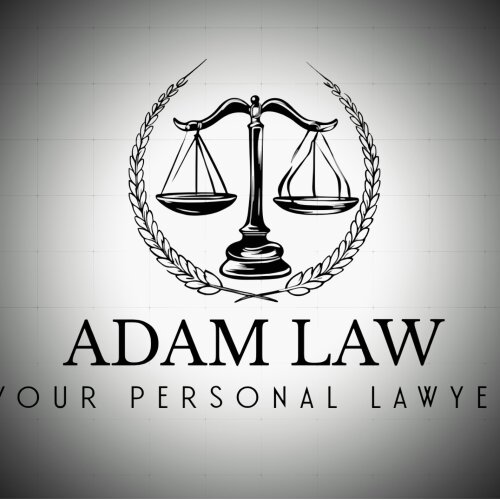
Best Employer Lawyers in Stockholm
Share your needs with us, get contacted by law firms.
Free. Takes 2 min.
List of the best lawyers in Stockholm, Sweden

About Employer Law in Stockholm, Sweden
Employer law in Stockholm, Sweden encompasses a wide range of legal practices and regulations governing the relationship between employers and employees. It includes hiring practices, working conditions, employee rights, contracts, terminations, and dispute resolutions. These laws are designed to protect both the interests of the employer and the welfare of the employees, ensuring a fair and legally compliant workplace environment.
Why You May Need a Lawyer
There are several situations where employers in Stockholm may require legal assistance:
- Drafting or reviewing employment contracts to ensure compliance with local labor laws.
- Handling disputes related to employee termination, including wrongful dismissal claims.
- Navigating complex regulations around workplace health and safety.
- Addressing allegations of discrimination or harassment within the workplace.
- Implementing changes in employment policies or restructuring the organization.
- Understanding employer obligations concerning employee benefits, pensions, and leaves.
- Managing issues related to employee privacy and data protection.
Local Laws Overview
Employers in Stockholm, Sweden must comply with several key local laws, including:
- Employment Protection Act (Lagen om anställningsskydd): Governs the terms of employment contracts, conditions for termination, and rights to severance pay.
- Work Environment Act (Arbetsmiljölagen): Ensures a safe and healthy work environment by outlining employer responsibilities and employee rights.
- Equality Act (Diskrimineringslagen): Prohibits discrimination based on gender, race, religion, disability, age, sexual orientation, or other protected characteristics.
- Parental Leave Act (Föräldraledighetslagen): Provides regulations on parental leave entitlements and protections for parents in the workforce.
- Collective Bargaining Agreements: Many workplaces are also governed by collective agreements which may provide additional rights and obligations beyond statutory laws.
Frequently Asked Questions
What is the minimum notice period for terminating an employee in Stockholm?
Under the Employment Protection Act, the minimum notice period varies based on the employee's length of service, typically ranging from one month to six months.
Are non-compete clauses enforceable in Sweden?
Non-compete clauses can be enforced but must be reasonable in terms of duration, geographical scope, and compensation for the restricted period.
What are the key elements that must be included in an employment contract?
An employment contract must include details such as job description, salary, working hours, notice period, and any specific terms related to the job role or employment conditions.
How are disputes between employers and employees typically resolved?
Disputes can be resolved through negotiations, mediation, or formal court proceedings depending on the nature and severity of the issue.
Are employers required to provide health and safety training to employees?
Yes, under the Work Environment Act, employers are obligated to ensure all employees receive appropriate health and safety training.
What should an employer do if an employee alleges workplace harassment?
Employers must promptly investigate the allegations, take appropriate action to address the issue, and ensure a safe and non-discriminatory work environment.
Can an employer unilaterally change an employee's job duties?
Significant changes to job duties typically require the employee’s consent unless otherwise specified in the employment contract or legally justified.
What are the rules regarding overtime work?
Swedish law regulates working hours and mandates overtime pay for work performed beyond regular working hours. Specific rules may also be included in collective agreements.
Are employees entitled to annual leave and holiday pay?
Yes, employees are generally entitled to a minimum of 25 days of annual leave and holiday pay, calculated based on their regular salary.
What legal protections exist for whistleblowers?
Whistleblowers are protected under Swedish law, allowing them to report misconduct or illegal activities without fear of retaliation from employers.
Additional Resources
Here are some useful resources and organizations for employers seeking legal advice:
- Swedish Work Environment Authority (Arbetsmiljöverket): Provides guidance on workplace health and safety.
- Swedish National Mediation Office (Medlingsinstitutet): Offers mediation services for labor disputes.
- Swedish Agency for Economic and Regional Growth (Tillväxtverket): Supports business development and compliance with labor laws.
- Swedish Employers Association (Svenskt Näringsliv): Represents employers in negotiations and provides legal assistance on employment issues.
Next Steps
If you need legal assistance with employer-related issues in Stockholm, Sweden, consider taking the following steps:
- Consult with a specialized employment lawyer who understands local laws and regulations.
- Gather relevant documentation, including employment contracts, company policies, and any communication related to the issue.
- Prepare a summary of the situation and any specific legal questions you have.
- Research and choose a reputable law firm with experience in employment law.
- Schedule a consultation to discuss your case and explore your legal options.
By taking these steps, you can ensure that you receive comprehensive and informed legal advice to effectively address your employer-related concerns.
Lawzana helps you find the best lawyers and law firms in Stockholm through a curated and pre-screened list of qualified legal professionals. Our platform offers rankings and detailed profiles of attorneys and law firms, allowing you to compare based on practice areas, including Employer, experience, and client feedback.
Each profile includes a description of the firm's areas of practice, client reviews, team members and partners, year of establishment, spoken languages, office locations, contact information, social media presence, and any published articles or resources. Most firms on our platform speak English and are experienced in both local and international legal matters.
Get a quote from top-rated law firms in Stockholm, Sweden — quickly, securely, and without unnecessary hassle.
Disclaimer:
The information provided on this page is for general informational purposes only and does not constitute legal advice. While we strive to ensure the accuracy and relevance of the content, legal information may change over time, and interpretations of the law can vary. You should always consult with a qualified legal professional for advice specific to your situation.
We disclaim all liability for actions taken or not taken based on the content of this page. If you believe any information is incorrect or outdated, please contact us, and we will review and update it where appropriate.















